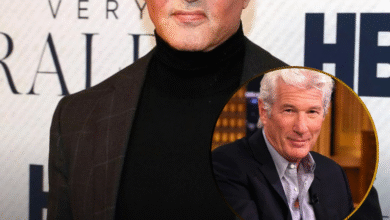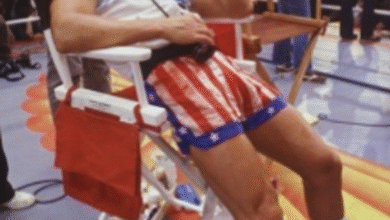Beyond the Blonde Bombshell: Marilyn Monroe’s Remarkable Private Library Reveals Her Intellectual Depth
OPINION: This article may contain commentary which reflects the author's opinion.
Marilyn Monroe, one of Hollywood’s most enduring icons, is often remembered for her glamorous roles and captivating screen presence. Yet behind the public persona of the blonde bombshell was a deeply curious and thoughtful woman—an aspect revealed through her extensive personal library, which contained over 430 books, many annotated with her own notes.
A Vast and Diverse Collection
Monroe’s private library, catalogued during the 1999 Christie’s auction of her belongings and confirmed by multiple sources including Open Culture, Goodreads, and The Invisible Mentor, showcased her wide-ranging intellectual interests. Rather than a mere collection of novels or celebrity biographies, her books spanned literature, philosophy, psychology, art, and even gardening.
Highlights from her collection include American literary classics such as F. Scott Fitzgerald’s Tender Is The Night, Ernest Hemingway’s A Farewell to Arms, and Mark Twain’s The Adventures of Huckleberry Finn. She owned anthologies featuring Edgar Allan Poe and Walt Whitman, classical works by Aristotle and Edith Hamilton, and important modern novels like Jack Kerouac’s On the Road and Ralph Ellison’s Invisible Man.
Monroe’s interest wasn’t confined to literature alone. She read about Sigmund Freud’s psychoanalysis, delved into French literature with Proust and Flaubert, explored Judaica, and even had books on gardening and pets. This eclectic mix demonstrates a woman eager to understand the world in many dimensions.
Annotations Reveal Active Engagement
Far from being a passive reader, Monroe’s annotated books reveal her deep engagement. Sources such as Evans.ink and TEYXO Style note her habit of underlining passages and scribbling marginalia, indicating she used reading as a tool for reflection, growth, and self-invention.
Photos captured her reading James Joyce’s Ulysses, a notoriously challenging work, signaling her literary ambition. The handwritten notes, combined with reports of late-night reading sessions on film sets, paint a picture of a woman who found solace and strength in literature, often turning to books during bouts of insomnia.
Challenging Stereotypes
Marilyn Monroe’s intellectual pursuits complicate the simplistic “dumb blonde” stereotype she was often unfairly assigned. Her library—rich, diverse, and well-used—demonstrates a profound hunger for knowledge and understanding. It is a testament to a woman who was much more than a Hollywood sex symbol: she was a thinker, a seeker, and an individual deeply invested in her personal growth.
Legacy Through Literature
The preservation of Monroe’s library and the detailed documentation of its contents allow us to glimpse the private side of a public figure. It offers insight into her mind and spirit and challenges us to reconsider the narratives we build around celebrity. Marilyn Monroe’s love of books remains an enduring part of her legacy, reminding us of the complexity and richness behind the glamour.
Sources:
-
Open Culture
-
Goodreads
-
The Invisible Mentor
-
Christie’s Auction Catalog, 1999
-
Evans.ink
-
TEYXO Style
-
Far Out Magazine



